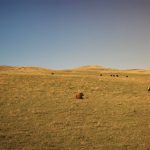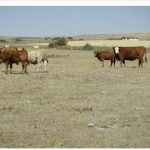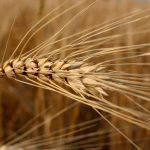OTTAWA – The Commons agriculture committee last week approved legislation giving the Canadian Wheat Board the right to deduct a wheat and barley levy for research.
The legislation now goes back to the House of Commons for final approval.
Only Reform MP Leon Benoit opposed the bill in committee. He said it was not an objection to the principle but to lack of accountability to farmers for how the money will be spent.
Liberals on the committee said accountability will exist through an annual public report.
Read Also

Land crash warning rejected
A technical analyst believes that Saskatchewan land values could be due for a correction, but land owners and FCC say supply/demand fundamentals drive land prices – not mathematical models
Once the legislation is approved by the Commons and Senate within weeks, the board check-off system will begin.
Unless farmers opt out, the board will deduct from the final payment 20 cents per tonne of wheat marketed and 40 per tonne of barley.
With a 90 percent participation rate, the government expects the checkoff will raise $4.7 million for research each year.
The money will be passed to the Western Grain Research Fund, which will distribute it to research projects and researchers.
Alberta growers exempt
Because they already have a checkoff through the Alberta Barley Commission, Alberta barley growers will be exempt from the CWB checkoff.
Lyle Vanclief, parliamentary secretary to the agriculture minister, told the committee Oct. 19 that an arrangement has been worked out with the Alberta commission to make sure there is no duplication.
They will not be in competition to fund projects.
Benoit said he and Reform support the proposal because they support research, and farmers will have a choice to opt out.
But he warned there is a limit to the number of checkoffs that can be organized.
“I have found there is more agreement (among farmers) than disagreement on this,” he said.
But there are growing signs of checkoff fatigue.
“This is something there will be more resistance (to) down the road.”
















